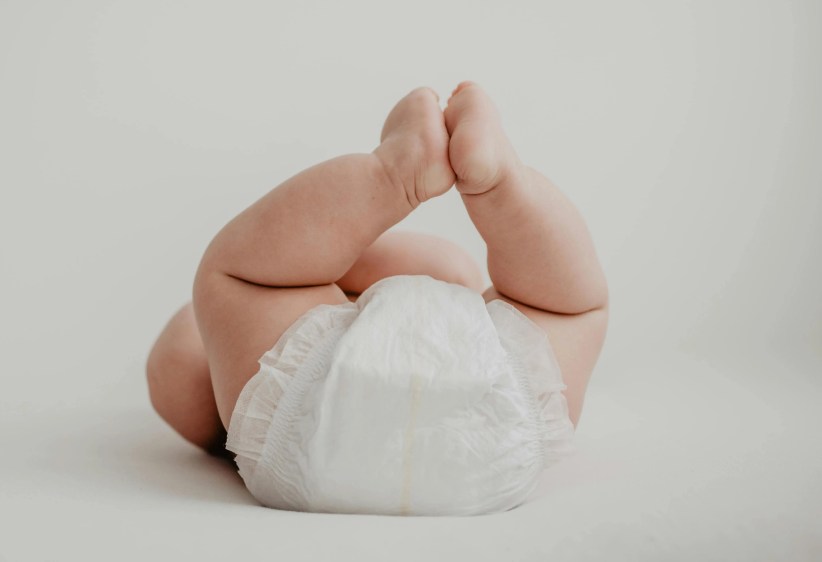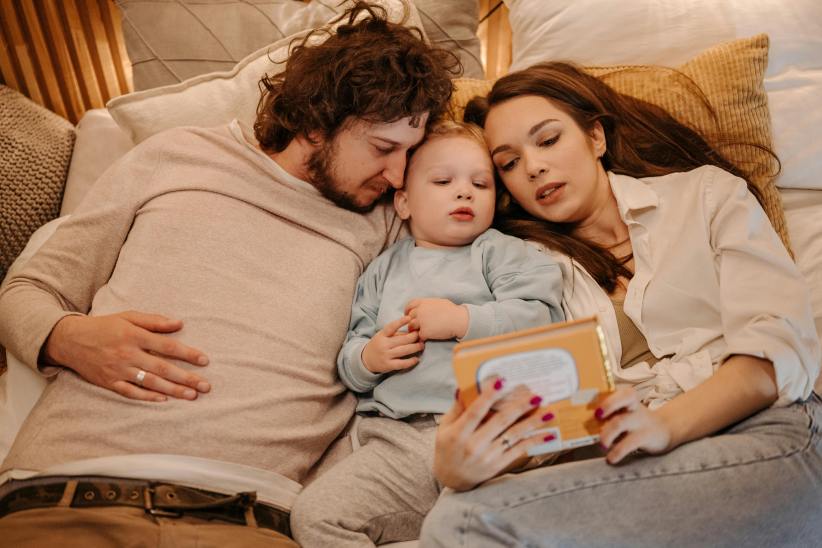It’s a milestone that lots of parents love, and they like to document it with lots of cute pictures.
Baby’s new teeth are adorable, but their care and maintenance routine can be confusing for many new parents. Here’s the scoop on the best way to properly clean those little pearly whites and the right time for that first visit to the dentist.
Dr. Frederick Stange, of City Dentist, says the perfect age for a child’s first visit can depend on how much room they have between their teeth.
“Children have spaces between their baby teeth — and that’s supposed to be the case,” says Dr. Stange. “That’s what makes those teeth ‘self-cleaning.’ Minimal care from the caretaker will keep the teeth healthy. Start with a flexible finger cot that is sold in most pharmacies — it helps keep the hands close to the child and offers more control. As the infant grows accustomed to this habit, you can switch to the brush.”
A toddler with spaces in between his teeth usually has his molars by the time he’s 2 years old, and that’s when Dr. Stange recommends bringing the child in for the first professional evaluation.
But children who don’t have spaces in between their teeth should be seen by a dentist much earlier — usually around his first birthday, or when you can see eight to 12 teeth in his mouth.
“Just like an adult, the touching teeth allow plaque and bacteria to grow in between. The children I see with little to no space between their teeth are usually the ones with decay.”
For all children, wiping the teeth clean before bedtime is important, even if you’re not comfortable using toothpaste right away.
“Start one thing at a time: finger cot, toothbrush, then toothbrush and paste. And never allow a child with teeth to fall asleep with a milk or juice bottle in their mouth. Sugar that will remain in the mouth overnight will cause decay. This usually starts in the front teeth and turns the teeth dark, but it’s so easily prevented.”
And the Midtown Manhattan dentist says parents can make it easier for children who may be anxious or uneasy about visiting the dentist for the first time.
“Preparation for a toddler’s first dental visit starts at home,” he says. “If this is the first time anyone is looking in the child’s mouth, the new experience with a stranger will most likely not be received well. I have my 4-month-old daughter hold and explore her little toothbrush, even at this young age. This way, she’s somewhat familiar with it, and it doesn’t become something that’s forced into her mouth. Rather, the experience of the toothbrush is almost akin to her pacifier, in that it’s accepted as normal.”
You can also prepare them at home by going through some of the same motions the dentist will go through: have your child open his mouth wide, so you can make a game of counting his teeth. Let him do the same for you. Give him a flashlight, if it makes the “game” more fun.
“If they are in control and understand the situation, you have removed the fear,” says Dr. Stange.
Going a step further, Dr. Stange recommends bringing your child with you when you see the dentist, so that he can see the dentist or hygienist is working on mom or dad, and that it’s ok.
“Start as young as you can. If they see that it’s easy with you, then it will be easier to relate to the dentist,” he adds.
At the very least, Dr. Stange urges parents NOT to threaten their children with a trip to the dentist.
“Children have excellent memories — if you tell them, ‘Brush your teeth or you will have cavities and then the dentist will have to pull out all of your teeth,’ they’ll remember that! Make it a positive experience and use positive reinforcement when your child is brushing correctly. You don’t want anything negative attached to the dental visit.”
If your child is using a toothbrush and is actually learning how to brush, Dr. Stange says it’s a good idea to do it while he is in a playful and inquisitive mood.
“Right before bed while your child is tired and fussy is probably not the time to try to brush the teeth. It’s best after dinner and after breakfast. Remember that the cavity and odor-causing bacteria are always growing in our mouth. We are controlling their population by brushing them away. It is not as much about brushing at 9:04 pm and again at 7:56 am as it is about removing bacteria twice a day.
“It is okay to brush and have one more bottle as long as — again — we don’t fall asleep with that bottle. Brushing effectively while a child is accepting is much better than fighting that cranky child at 11 pm. Ultimately, it is best to brush, then go off to bed, and in the morning after breakfast would be best as well.”
Bottom line? Make oral hygiene an important part of your child’s daily routine, and you’ll never go wrong.
“We find ways to have our children enjoy reading or coloring daily, so we should be doing the same with our oral health routine,” says Dr. Stange. “But timing is very important. We usually don’t ask them to wait till bedtime to start reading, playing, or learning, so we should take care of their teeth throughout the day as well.”
Monica DiClerico Brown is a television news anchor and freelance writer who lives in Pearl River, NY, with her husband and two children.





















